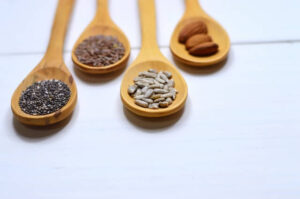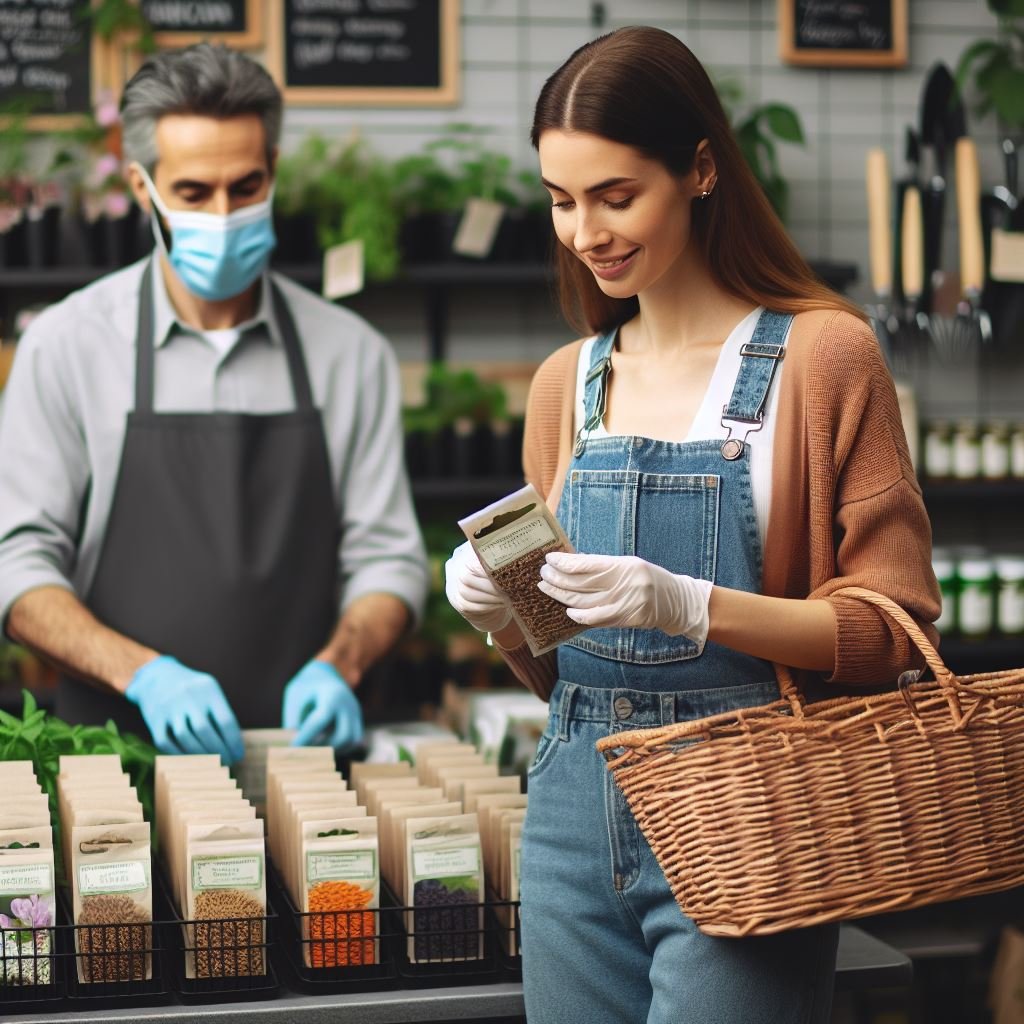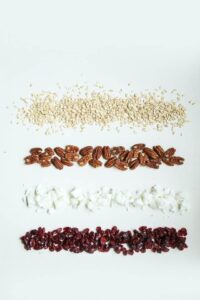Download: How To Select Good Seeds For Planting: Everything You Need to Know to Pick The Best
Table of Contents
Choosing the right seeds is a pivotal step in gardening. Whether you’re a budding enthusiast or a seasoned green thumb, understanding how to select quality seeds can make all the difference in your garden’s success. This guide delves into the nuances of choosing good seeds for plants, combining expert insights, scientific studies, and practical tips.
Beginner to gardening? Check our ultimate step-by-step guide to starting a successful garden.
Understanding Seed Quality: The Basics
Seed quality can be explained as the ability of a seed to maintain a high standard of purity, vigor, good germination percentage, trueness to its origin and appearance.
High Quality Seeds
Good high-quality seeds boast high germination rates, genetic purity, and are free from diseases. They should be sourced from reputable suppliers who provide clear information about their origin and variety.
The key is to look for seeds that are:
- Fresh: Check the packaging date. Older seeds have lower germination rates.
- Well-stored: Seeds should be kept in cool, dry conditions.
- Certified: Look for certifications like organic or non-GMO, if that’s important to you.
The Importance of Seed Viability
Seed viability refers to the ability of a seed to germinate and grow into a healthy plant. Conduct a simple water test: viable seeds typically sink in water, while non-viable ones float.
Read also: How Does A Plant Grow Step By Step
Low-Quality Seeds
Low-quality seeds can be described as seeds with low germination percentage, low plant vigor, mixed varieties, and they are also more susceptible to diseases and pests attack. Low-quality seeds when planted in the garden can also easily introduce weed to the garden.

The success of any garden or farm depends on which crop is planted. Therefore, spend your time and select good and quality seeds for your garden.
How To Choose Good High-Quality Seeds For Plants
But, with so many seeds out there in both online and offline stores that claimed to be purely organic, how are you going to choose the best kind of seeds?
Here is a step by step guide on how to select good seeds for planting on your garden or farm:
- Know the method from which the seed is produced
- Know the source of the seed
- Choose the seeds that best suit the season
Related: How to Grow Seeds Indoors and Outdoors
Know the Method from which the Seed is Produced
It’s important to know the method from which the seeds are produced so that you can easily figure out whether the seed is heirloom, organic, hybrid.
Knowing this can help you avoid selecting seeds that are produced through genetic manipulation and hybridization methods.
Best quality seeds are produced organically and the steps include the followings:
The gardener removes weeds by hand alongside diseased and off-type plants. Seed selection during production is done base on some important quality features such as low input requirements, high yield, flavor and aroma, good yield of non-green biomass pests, disease resistance, and storability.
In terms of harvesting, quality seeds are harvested by hand in order to avoid mechanical damage to the seeds and also to avoid contamination by weed seeds and other unwanted material.
When the harvesting is completed, seeds are usually threshed and clean by hand in order to reduce impurities. The seeds are also dried up under the sun to remove moisture content.
Seeds are separated from other grains during storage and the storage method is usually done by hanging the seeds overhead in a smokey arras.
Keeping seeds in smoky areas is done to protect the seeds from damage by insect pests and also to reduce the moisture content of the seeds.
Related: How to compost at home step by step
Alternatively, gardeners also save seeds by organically adding local seeds preservatives such as neem, ash, sand, and eucalyptus leaves, which are then stored in a special container L’s and put above the fireplace.
As you can see, throughout the production of seeds using this method, there is no place where chemical or genetic manipulations are involved during the production process.
This is how pure organic seeds are produced. And that is what you will be asking the sellers or local farmers in order to find put quality seeds.

Recommended: Want to level up your gardening knowledge? Here are 5 best gardening courses that can take you from beginner to a seasoned gardener.
Learn more about seed production here.
Know the Source of the Seeds
National and International Seeds Banks
This is a great source of seeds where you can find wide varieties of seed types that are pure and qualitative.
Different bodies such as the National government and international organizations usually store different seed types from different crop varieties in a place known as seed banks.
However, these sources of seed usually store many seed types using seed storage containers, and this sometimes makes it difficult for them to maintain all the local varieties that adapted to changing different local climatic conditions.
Related: How to prepare a garden spot
Community Seed Banks and other Local Community Institutions
Some rural and urban communities possess seed banks where they preserve their traditional quality seeds, which they inherited from ancestors.
Sometimes, even a small group of people usually store their local seeds in order to conserve and save them from decreased in quality and extinction.
In these types of seed banks, you can find quality seeds to select for your garden. This is because there are too many seed types and they ate frequently saved every year.
Seed Companies
These are commercial sectors where seeds can be bought. Seeds companies produce all kinds of seed types including genetically modified seeds, treated seeds, and hybrid seeds.
The problem with this source of seed is that some of the companies are not reliable. Buyers have to cross-check and compare different labels And packets through overwhelming seed catalogs.
If you want to select and buy seeds from commercial seed companies, you need to take note of the following:
- Seed packet
- Seed expiration date
- Type of seed
- Variety of seed
The first thing to look at while selecting seeds for your garden from these companies is the package. On the seed packet, you can see the variety of the seed, type of the seed, expiration date, and label (that is whether the seed is GMO, Heirloom, Organic, or hybrid).
Learn more about seed labels here
However, some of the online stores including some of the offline ones can label their seed products as organic or heirloom, but in reality, the seeds are not.
In this case, you need to go through customers’ reviews both on the website and other online communities.

Choose the Seeds That Best Suit the Season
After you have found the quality seeds from quality sources and methods of production, the next thing is to sort out the seeds by growing seasons.
Choose the seeds that best suit your growing climatic conditions. If you long winter in a year, go for seeds that grow well under winter.
And if it’s summer with the longest growing season in your area, go for seeds that best grow under summer.
Naturally, plants differ in climatic requirements. Some plants prefer cold climatic conditions while others plant hot climatic conditions.
Either way, you need to select seeds that can grow well in your native climate. This can be done by asking your local farmers and gardeners. Ask more questions and you will be saved from wasting more time and energy.
Related: How To Choose A Garden Spot (Step By Step Guide)
6 Types of Seeds: Exploring Seed Categories
- Nuclear Seed: Propagation material grown under controlled conditions.
- Breeder Seed: Produced under the guidance of plant breeders, ensuring genetic purity.
- Foundation Seed: A descendant of breeder seeds, focusing on genetic identity.
- Certified Seed: These meet specific criteria for genetic purity and quality.
- Formal and Informal Seeds: Formal seeds are modern agricultural seeds, often genetically modified, whereas informal seeds are traditional, organically produced seeds by local farmers.
Scientific and Cultural References
A study by the University of Agricultural Sciences highlights the importance of seed quality in agricultural output. Culturally, seeds are more than just plant starters; they’re symbols of growth and renewal in many societies. Learn more about seed quality from here and here.
Current Trends in Seed Selection
The Rise of Heirloom Seeds
Heirloom seeds are gaining popularity for their unique flavors and traditional cultivation methods. They represent a connection to our agricultural heritage and biodiversity.
Technological Advances in Seed Quality Assessment
Modern technology has revolutionized seed selection. Advances in genetic testing allow for more precise seed quality assessments, ensuring better crop yields and disease resistance.
Future Implications: The Seed Revolution
Looking ahead, biotechnology and climate-adaptive seeds could redefine what it means to choose good seeds. These innovations promise to enhance food security in the face of climate change.
Frequently Asked Questions
Why is it Important to Choose the Best Place for Planting?
Choosing the best place for planting can help prevent your garden plants from drying and dying up, which may be caused by a lack of sufficient nutrients, sunshine, and water.
A good garden possesses sufficient nutrients, receives enough sunlight, and also has a good source of water. The soil is also good for proper plant growth and can retain and drain water optimally.
What is the difference between Monocots and Dicots?
The major difference between monocotyledons and dicotyledons is that the monocot plants possess only one seed leaf or cotyledon while the dicot plants have two cotyledons.
Conclusion: How To Select Good Seeds For Planting
Choosing good seeds is an art and a science. By understanding the fundamentals, keeping abreast of new trends, and applying practical know-how, you can turn seed selection into a cornerstone of your gardening success.
Remember, gardening is a journey of learning and growth. Every seed holds potential; your choices can unlock it.

